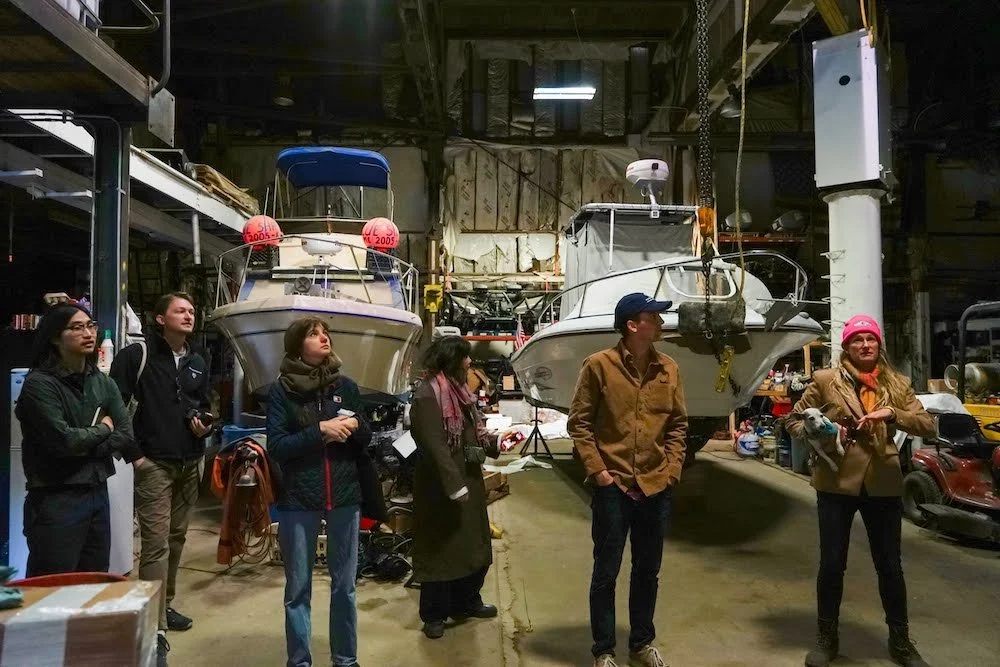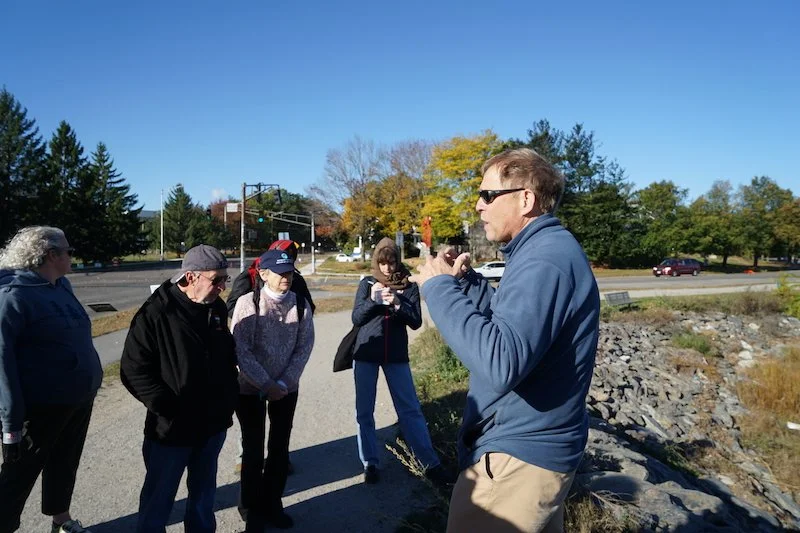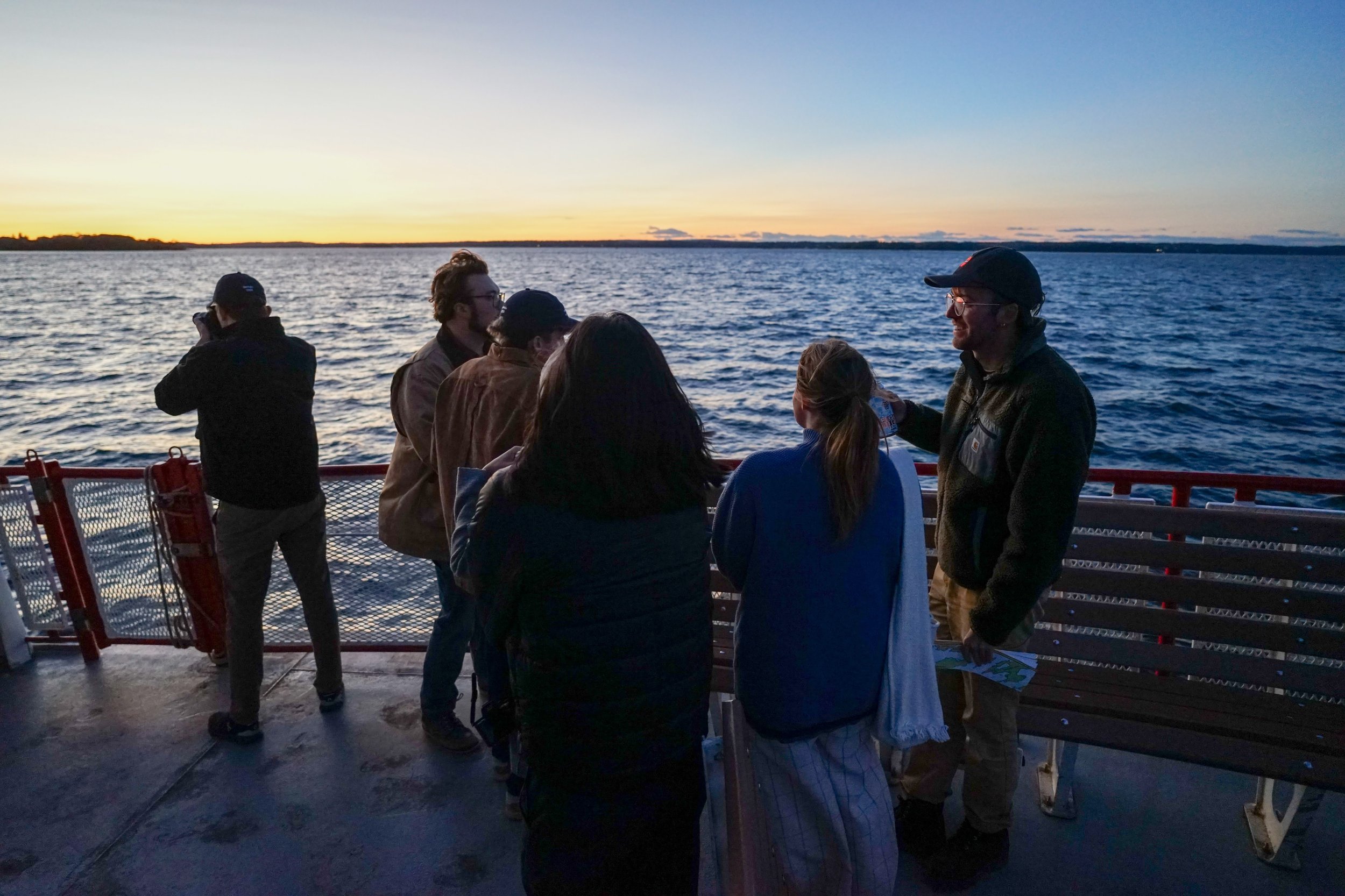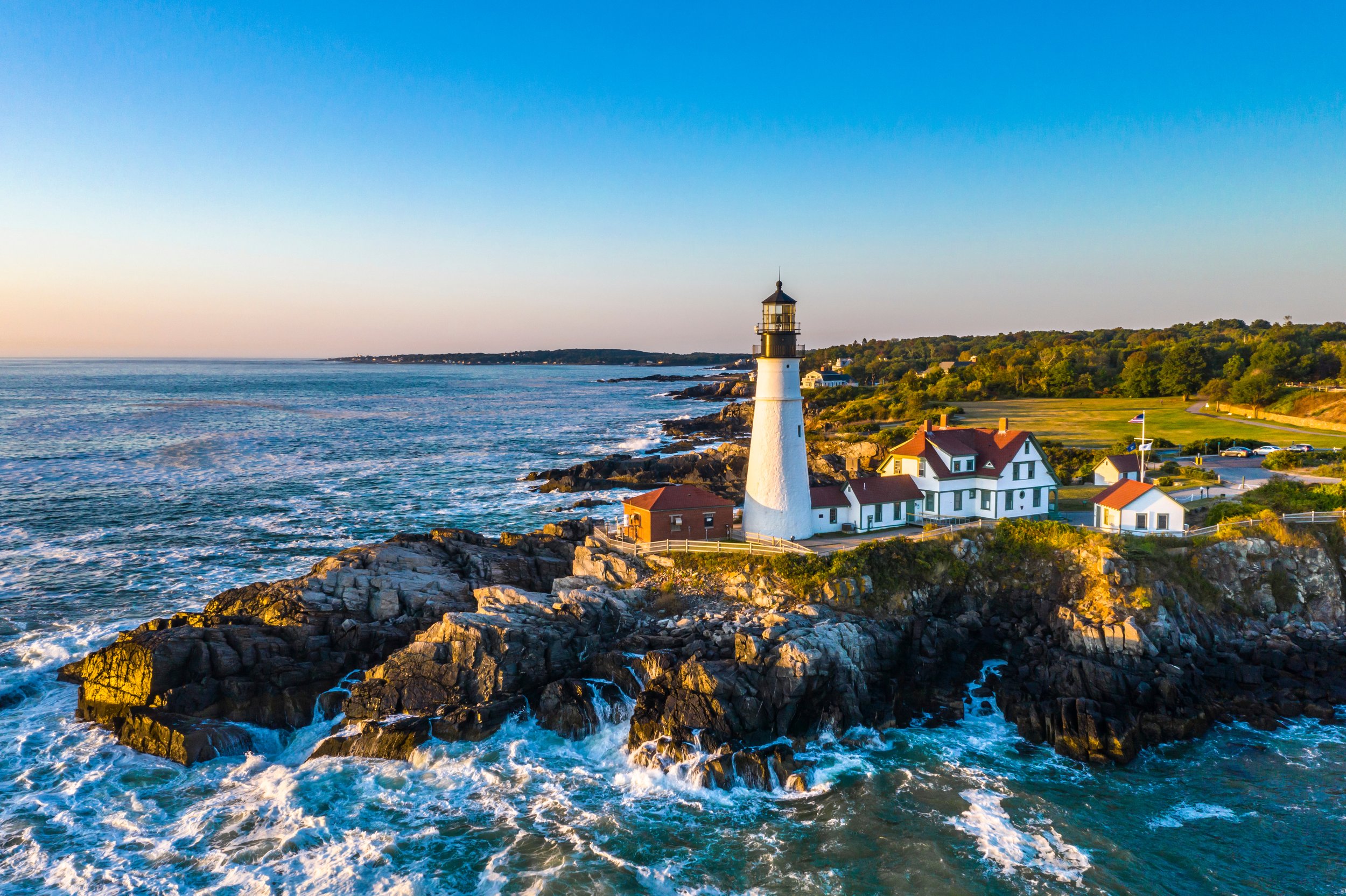
MEET THE PORTLAND AND
SOUTH PORTLAND TEAMS
Meet the Teams
Introducing you to the studios of the 2024 Envision Resilience cohort made up of Cornell University, Harvard University, University at Buffalo, University of Maine Augusta, University of Michigan, University of Virginia, Yale University and the program’s first international partner, University of Toronto.
Cornell University, Department of Landscape Architecture
Anne Weber
Students: Amanda Carmen Bower, Evanna Gao, Yin He, Peter Kelly Jenkins, Tony Jiang, Yinyue Jiang, Xueting Jin, Chloe Bella Long, Nina Niu, Riley Noble, Sam Barkan Rimm-Kaufman, Yixuan Sun, John Cole R. Warner, Sicheng Zhou, Xiaohan Zhou
Littoral Futures: Envision Resilience Portland + South Portland
This studio focuses on the idea of the littoral edge, specifically the shores around Back Cove in Portland, Maine, around the South Portland peninsula and the Casco Bay Islands. The students are mapping layers of biodiversity, opportunity, risk and vulnerability for sites including the neighborhoods of Bayside and East Bayside, the living shorelines of Back Cove, the marsh migration in Thompson Point and East Deering and the neighborhoods at Ferry Village, Willard Beach and Peaks Island.
Anne Weber
Assistant Professor, Landscape Architecture
Anne Weber is an Assistant Professor in the Department of Landscape Architecture at Cornell University. Her research focuses on rural landscapes, particularly landscapes of extraction, production and conservation, as urgent sites of design in the context of climate change. Prior to Cornell, she worked at SCAPE Landscape Architecture on a range of projects, including Petrochemical America, Midtown Center Plaza, Hudson Riverport, Town Branch Commons and the Town Branch Water Walk, a podcast tour of a stream buried beneath a city. Her professional work has received both National and NY SARA Awards, NY ASLA Merit Awards, a Best of Design Honorable Mention Award from Architect’s Newspaper, and an APA KY Planning Award for Civic Engagement. Her research has received funding from the Water Resource Institute, Penny White Traveling Grant, Peter Walker Fellowship, as well as the Lewis Hine Documentary Fellowship from Duke’s Center for Documentary Studies. She received her MLA with distinction from Harvard’s Graduate School of Design, and a BA in visual art from Yale University. Prior to Cornell, she taught courses and workshops at Harvard’s Graduate School of Design, the University of Kentucky, and the Rhode Island School of Design.
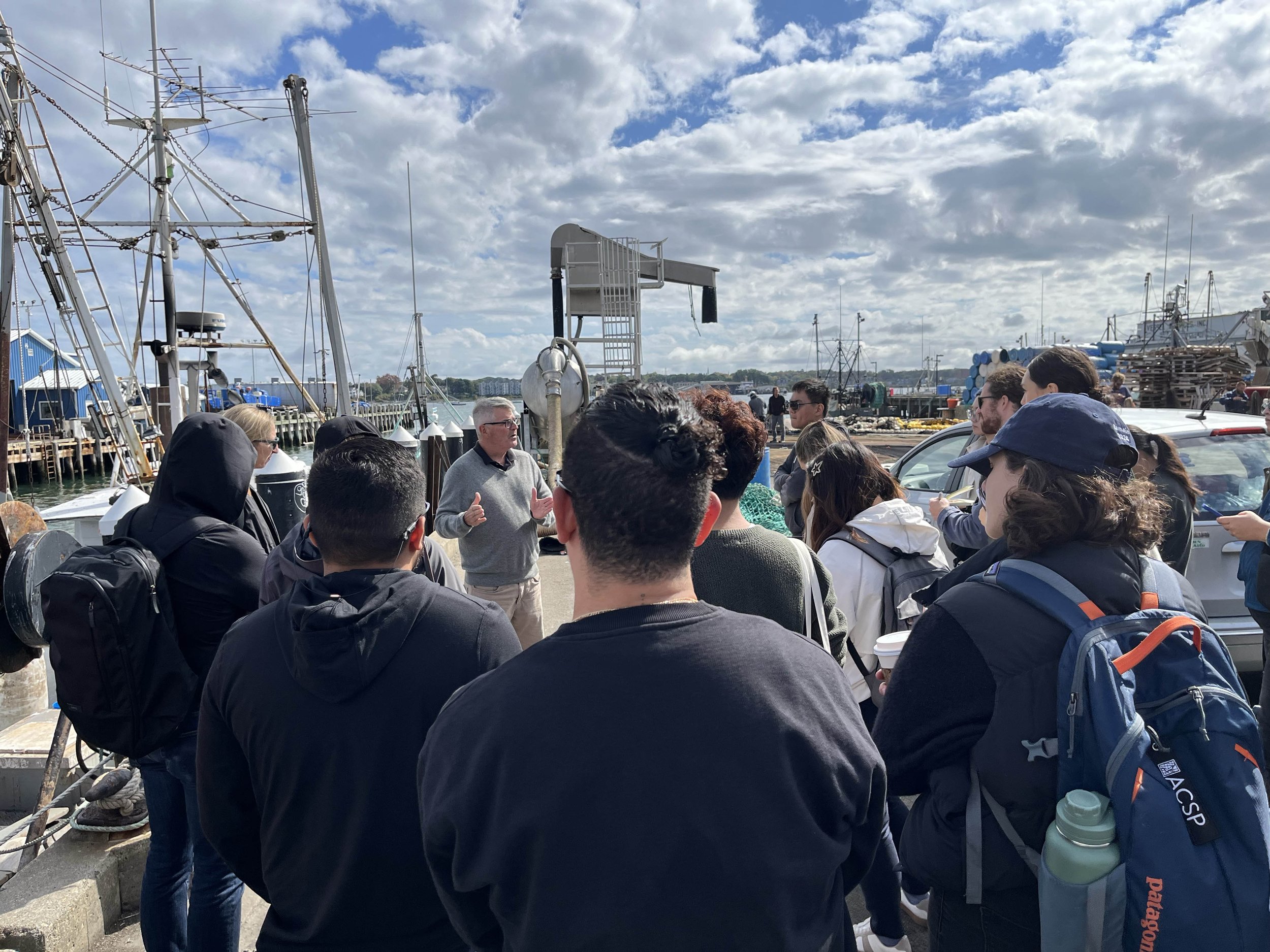

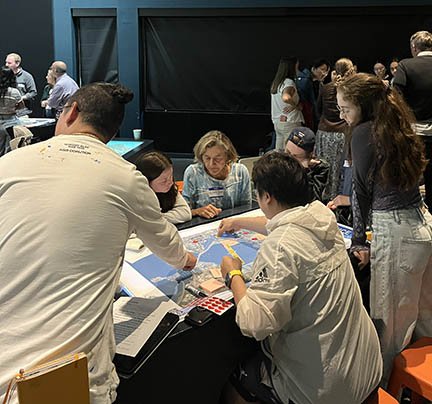
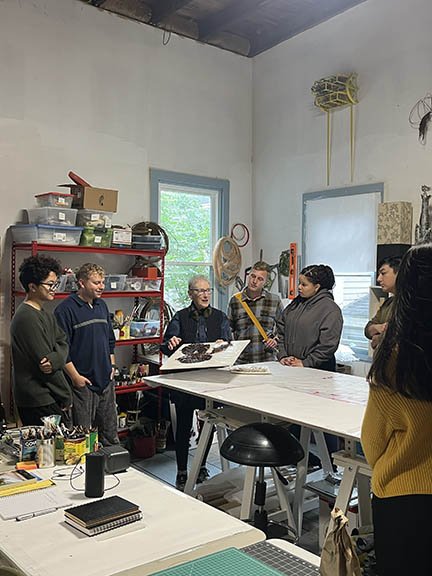
University at Buffalo, Department of Architecture
Kristine Stiphany, PhD, AIA & Jason Sowell, RA, NCARB
Students: Anushka Ahire, Chase Carpenter, Gavin Carroll, Rishabh Chopra, Kielee Clement, Ian DeWald, Julia Ferone, Satya Gangupati, Andrew Hu, James Metzker, Ian Simmons, Ana Pereira, Carol Recinos Luna, Nayarit Tineo and Bobby Zhao
Reimagining Casco Bay: Designing for Extreme Climate Events in Coastal Cities
During the Fall 2024 semester, this studio is utilizing scenario planning to integrate nature-based solutions into the water-vulnerable landscapes of Casco Bay, Maine. The students are researching the historical evolution of the working waterfront of ‘Ports and Forts’ and designing seven neighborhood activation scenarios along the transects of Back Cove, Portland’s East End, across Portland Harbor, Portland’s Old Port, Sprague Terminal, the City of South Portland and Willard Beach.
Kristine Stiphany
Assistant Professor, Department of Architecture
Kristine Stiphany, PhD, AIA, is an architect and urban planner who investigates the social, technical, and cultural dimensions that shape urban redevelopment in the Americas, with a focus on housing informality and participatory technologies in Brazil and along the U.S. – Mexico border.
Stiphany is a Fulbright Fellow, the founder of the Chapa Civic Data Lab, co-editor of the Latin American Housing Network, and recipient of several design awards, most recently from the Texas Society of Architects. Stiphany has published in Urban Studies, Journal of Architectural Education, Latin American Research Review, and the Journal of Planning Education and Research, among others.
She received a PhD in Urban Planning from the University of Texas at Austin, where she also earned a Master of Architecture, and a Bachelor of Fine Art in Photography from the University of Michigan.
Jason Sowell
Associate Professor, Department of Architecture
Jason Sowell investigates how landscapes adapt to climate change, with a focus on how technologies shape housing and management practices.
He is a registered architect and associate professor of architecture at the University at Buffalo. He received a Bachelor of Architecture from the University of Tennessee and a Master of Landscape Architecture from Harvard University. His research examines the role of landscape-oriented infrastructures for guiding urban adaptations to climate change, with a focus on housing and management scenarios.
Sowell has published research about flood mitigation in cities, propagation technologies, and energy landscapes in the Journal of Architectural Education, Thresholds, and Bracket, respectively. His work has been exhibited at the Venice Biennale and the Pan American Biennale (with Nichole Wiedemann); and awarded by Cleveland’s Urban Design Collaborative for a proposed reclamation of Irishtown Bend in 2007 (with Hope Hasbrouck), Brasilia’s Secretary of Housing for the Sobradinho Social Housing Competition in 2016 (with SIAA), and in 2020 from the Texas Society of Architects and EDRA for the Brownie Neighborhood Park project in Austin (with Kristine Stiphany).
At The University of Texas at Austin, he directed the Master of Landscape Architecture Program, led landscape studios about cemeteries as resilient urban infrastructures, and received the 2010 CELA National Excellence in Design Studio Teaching Award.
Sowell is a principal of SSAU (with Kristine Stiphany), a studio focused on creating socially-oriented interactions between landscape and architecture through projects that span a private residence in the Catskills to Farm Lot, a one-square mile Health-Centered Development on the Texas High Plains.
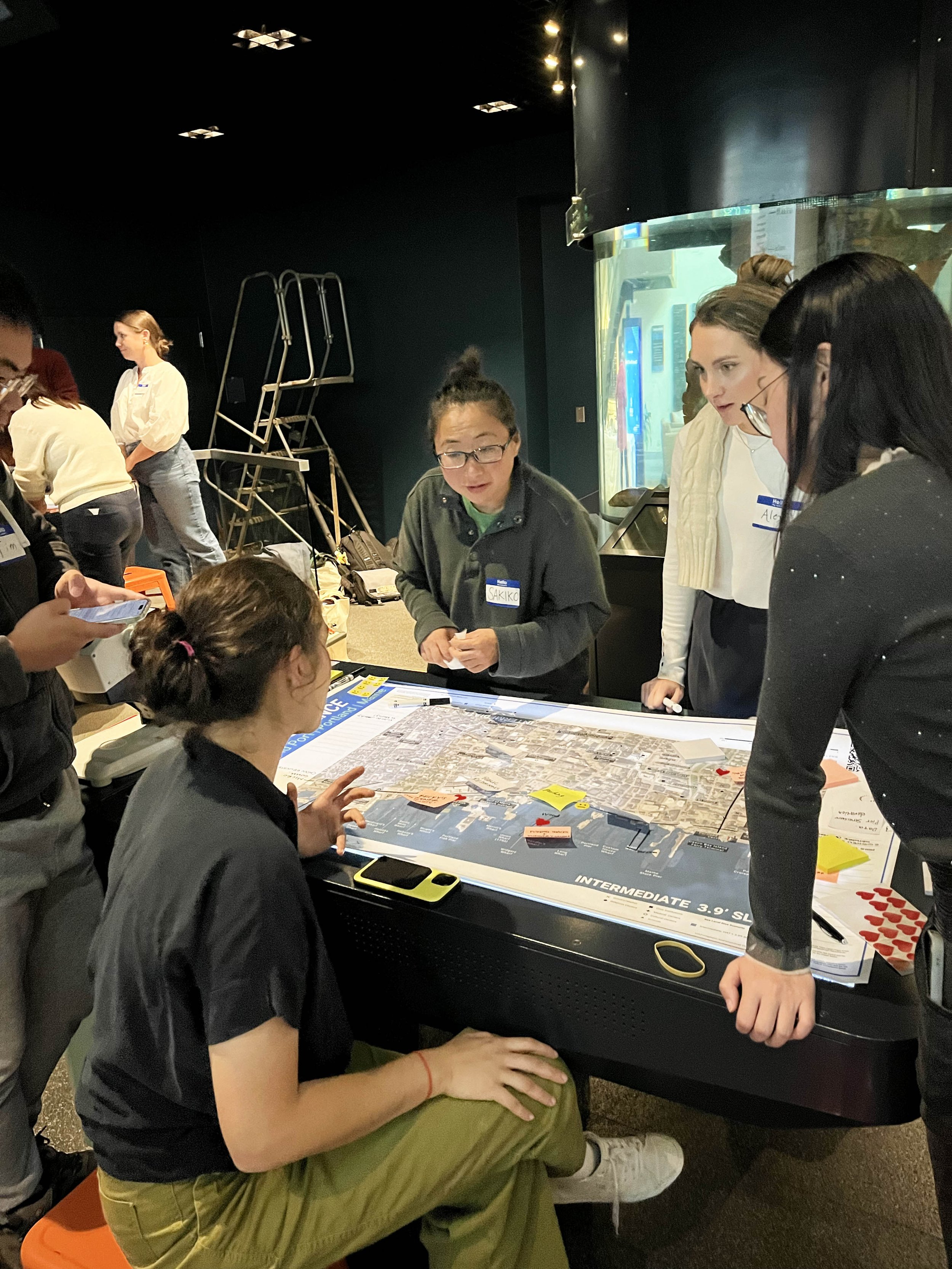


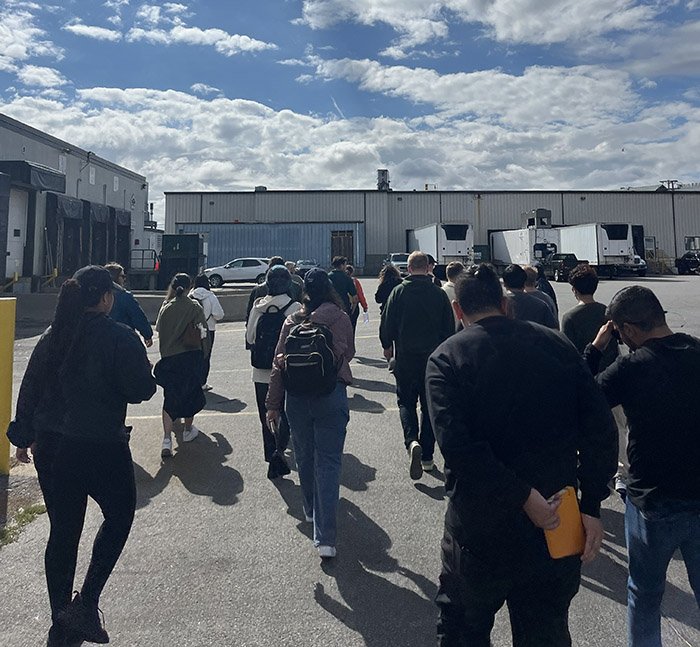
Harvard University, Graduate School of Design
Pamela Conrad, PLA, ASLA, LEED AP & Michael Blier, FASLA, RLA, Hon BSA
Students: Qijia Chen, Garrett Craig-Lucas, Willa DeBoom, Sakiko Isomichi, Tim Jia, Alexandra Kupi, Jein Park, Kati Wiese, Makenzie Wenninghoff
Teaching Assitant: Shan He
Studio Brief: Imagining a Future Waterfront for Portland, Maine
Three studio teams is weaving local knowledge to apply risk response and transformative planning and design to assemble a comprehensive toolkit of adaptation strategies to envision a resilient future for Portland’s waterfront. Through mapping exercises and community engagement, the students are assessing climate risks and impacts on both human communities and ecosystems, while quantifying the carbon impact of their interventions.
Pamela Conrad
Design Critic, Landscape Architecture
Pamela Conrad, PLA, ASLA, LEED AP, is an internationally recognized landscape architect, 2023 Loeb Fellow at Harvard, and Architecture 2030 Senior Fellow. Her passion for the environment is deeply rooted – from growing up on a farm in Missouri to degrees in Plant Science and regenerative landscape architecture. Conrad’s 20-year career most recently as a Principal at CMG Landscape Architecture has focused on implementing nature-based solutions in the built environment from large-scale habitat restoration to a decade of adaptation projects in San Francisco, California.
Pamela’s influential research on carbon sparked by the LAF Fellowship for Innovation and Leadership is elevating landscape architecture’s role in climate change and informs her work as the Founder of Climate Positive Design. She focuses on finding solutions to the climate crisis and planning for a resilient future as ASLA’s Climate Action Plan Chair and IFLA’s Climate Action Committee Vice-Chair. Conrad has been featured in Forbes, TIME Magazine for Kids, the recent book “Build Beyond Zero”, and on stage at COP27. She has received numerous awards including the Metropolis Planet Positive Award, ASLA’s Award of Honor, and SF Business Times Women of Influence Award.
Michael Blier
Founding Principal & Design Director, Landworks Studio
Michael Blier is a registered landscape architect and founding principal of the critically recognized design group Landworks Studio, located in Salem, Massachusetts, with a satellite office in Taipei, Taiwan.
Michael’s recent work is largely urban and site-specific in nature. It seeks to exploit the inherent complexities that exist between ecologically challenged sites, environmental and cultural sustainability, material tectonics, and program. Exploring these complexities results in highly performative, experientially, and visually compelling solutions to a broad set of conditions that confront the re-urbanization of disturbed land.
Michael has been teaching studios and visiting as a critic at the Rhode Island School of Design since 1991 as a means of engaging and expanding the discipline of landscape architecture and to test the processes by which it is conceived. He also lead design studios and taught representation courses at Harvard’s Graduate School of Design and Cornell University.
He has lectured extensively throughout the United States at universities including the Knowlton School of Architecture at The Ohio State University, Penn State University, Rhode Island School of Design, University of Colorado in Fort Collins, The Taubman School at the University of Michigan, Louisiana State University, The University of Illinois C/U, and Harvard University.
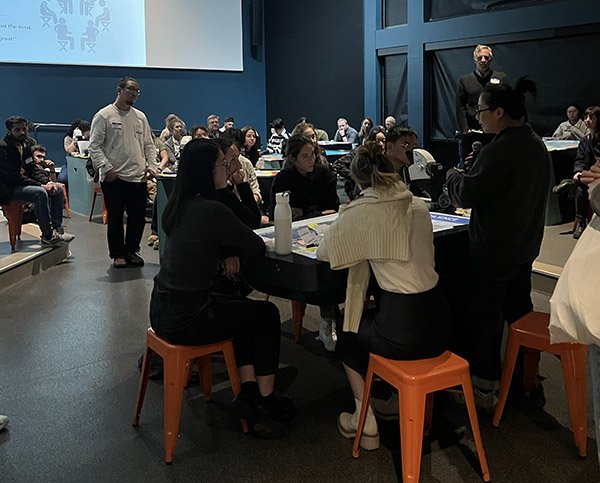

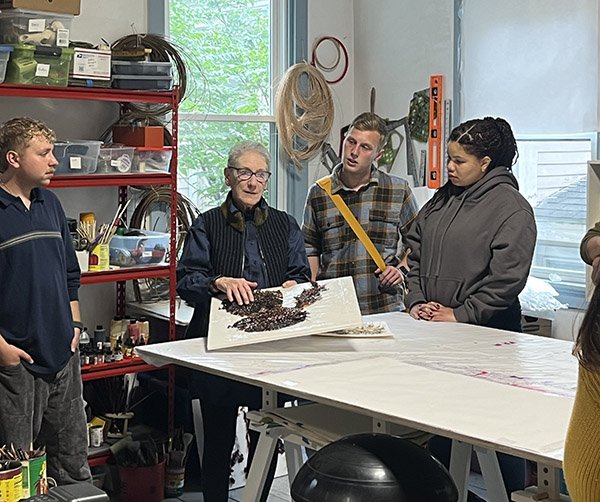

University of Maine Augusta, Architecture Program
Patrick Hansford
Students: Megan Brown, Nolan Cartwright, Eloisa DeGroote, Suzie Felix, Kelsey George, Rohan Glendinning, Kaden Harrison-Billiat, Brennan Loewen, Marie Lough, Nicholas Smart
From Vacationland to Climate Change Haven
Maine’s only collegiate architecture program is focusing its studio on how and where new development can occur in project areas with a focus on multi-modal interconnectivity, affordable housing, possible expansion of the working waterfronts, and shoreline protection. Each student group will research both Portland and South Portland and determine how architecture can best address the issues being raised by the Envision Resilience Challenge, including issues of building materiality, vulnerability, remediation, transportation and mobility. Each design team will create a master plan and then develop architectural solutions within their master plan, with a focus on engagement with the community.
Patrick Hansford
Assistant Professor, Architecture
Patrick Hansford is an architect, planner, and educator. Originally from Troy, Ohio, he graduated from Bowling Green State University with a Bachelor of Science degree majoring in architectural and environmental design technology. Mr. Hansford completed his formal architectural education at Miami University obtaining his Master of Architecture.
Mr. Hansford began his career working for several award-winning firms as a project designer. Prior to starting his own firm, Mr. Hansford was a designer and the senior project architect for Woolpert, an internationally contracted engineering/architecture firm based in Dayton, Ohio. Since 1994, Hansford has practiced through his own firm, Patrick Hansford Associates. The firm’s mission was to provide contextual design solutions for the unique environment of the American small town.
With over thirty years of professional practice, his project experience includes governmental, commercial, industrial, residential, and historic preservation projects.
Mr. Hansford is certified by the National Council of Architectural Registration Boards and currently is licensed to practice architecture in Maine, Ohio, Indiana, Michigan, Wisconsin, and West Virginia.

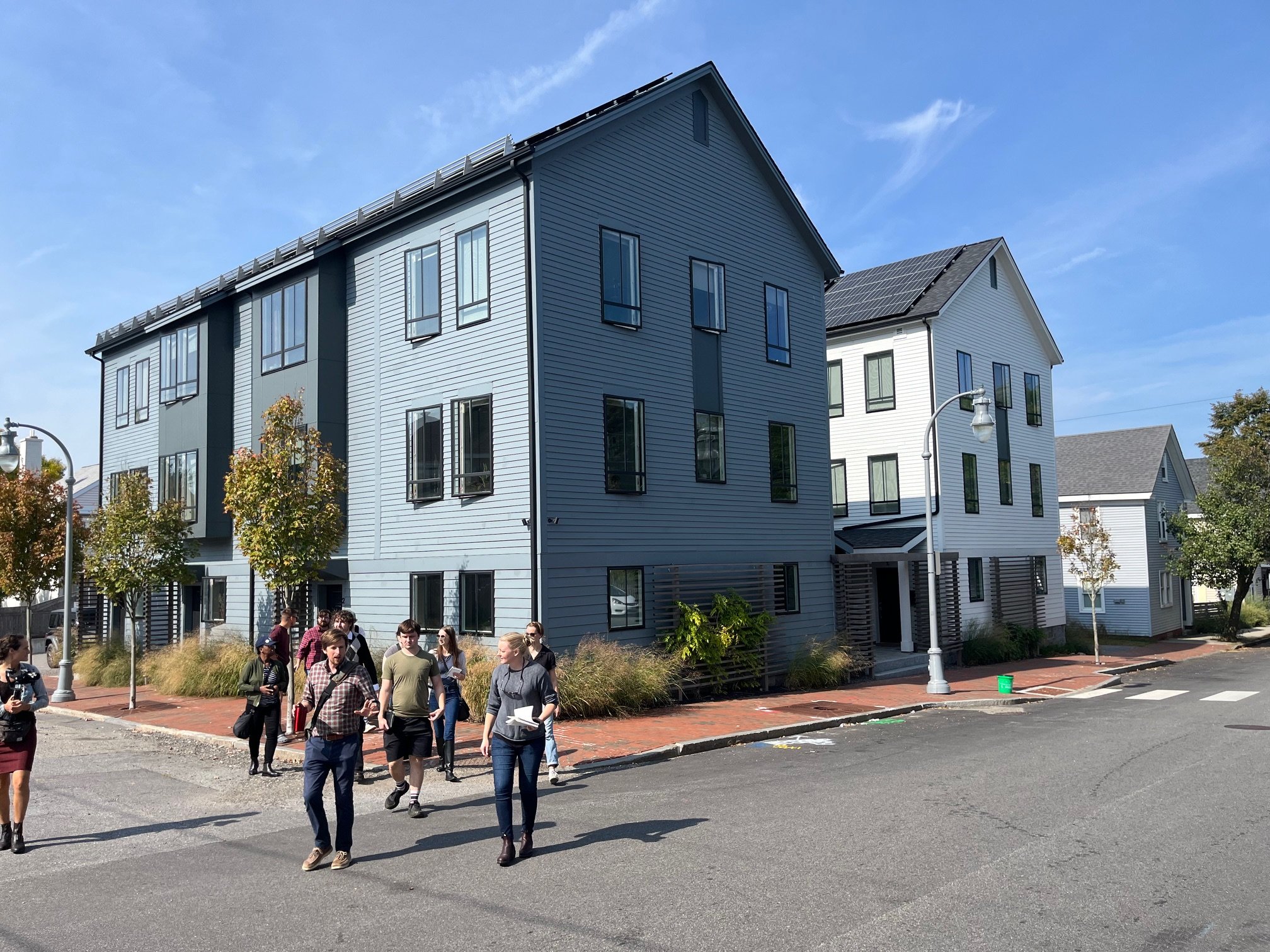
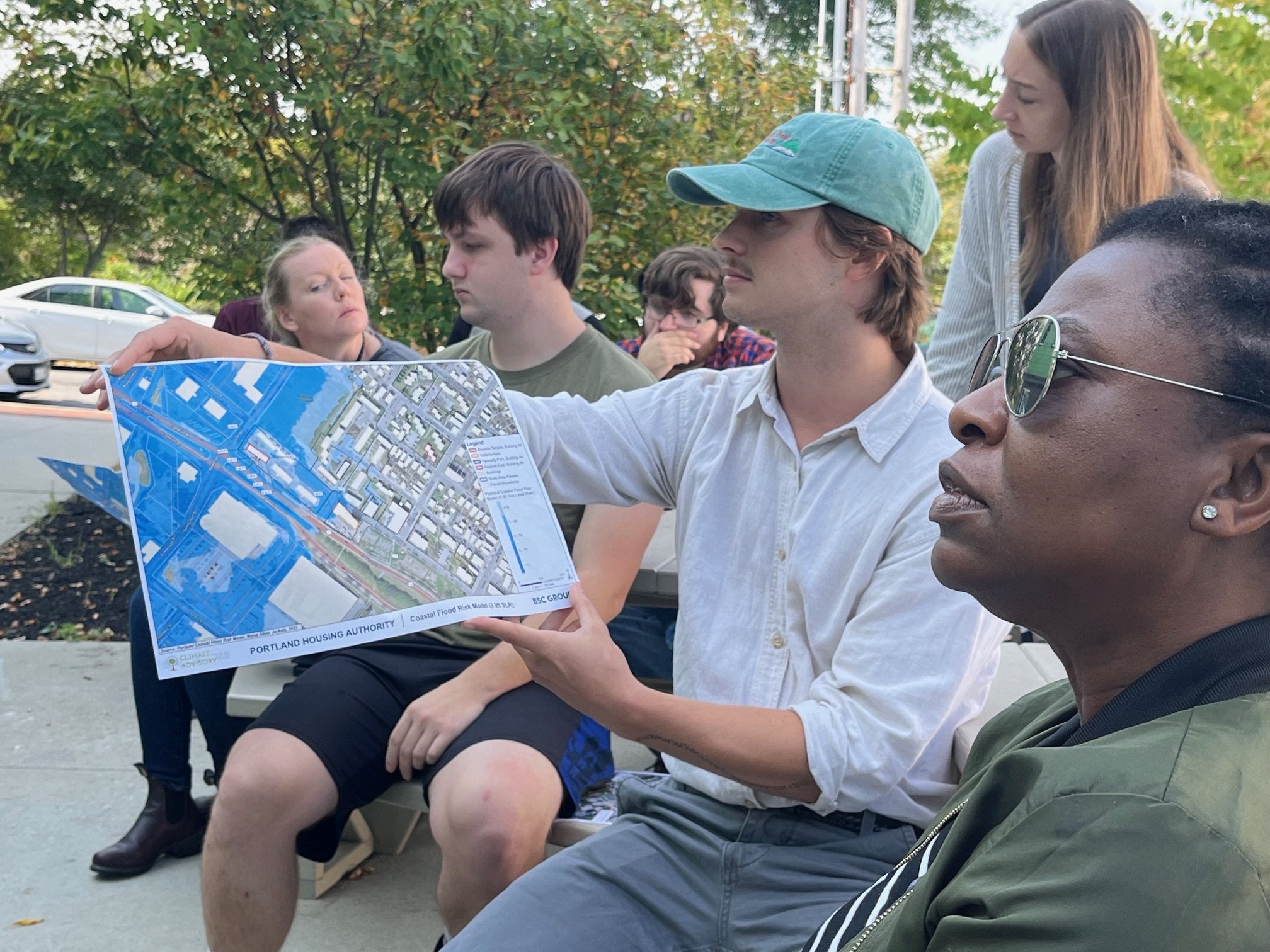

University of Michigan, School for Environment and Sustainability
Lisa DuRussel & Mark Lindquist, ASLA, PhD
Students: Emily Brent, Brooke Bulmash, Grace Carbeck, Christina Contreras, Hope Fryer, Alexa Garnet, Alex Grainger, Ren Hoff-Miyazaki, Rachel Kerr, Daniel Lim, Deliang Lyu, Myles Markey, Kaia McKenney, Kammer Offenhauser, Jayna Sames, Shiru Xu, Sumire Yamada, Jing Yan, Teresa Zbiciak
Studio Brief: Resilience 2100: Design Opportunities for Advancing South Portland’s Climate Resilience
Bringing students together across the disciplines of environmental justice, policy, urban planning, geospatial data science, ecosystem science and landscape architecture, this studio examines South Portland’s open water, shoreline and inland neighborhoods with a focus on design strategies that emphasize holistic connectivity, future energy transition and green stormwater solutions. Every design strategy embodies the goals of 1) making places for people, 2) protecting the public from future coastal flooding, storm surge and extreme rain events and 3) supporting the aquatic and terrestrial environment and habitats.
Lisa DuRussel
Assistant Professor of Practice, Landscape Architecture
Raised in a family of farmers in rural Michigan, Lisa developed a formative respect and commitment to the sophistication and complexities of nature at a young age.
As a practicing landscape architect and educator, Lisa draws from 15 years of professional design experience where she has led the design and implementation of award-winning projects that innovate on ecological design. Her practice, Site Science, places focus on research-based design and implementation strategies that integrate deep ecological design principles into forward-thinking functional and experiential landscapes. Through the craft of exploration, experimentation and cross-disciplinary study, Lisa’s work amplifies collaborative action with deep community engagement.
Lisa has held project leader positions with established design firms: Unknown Studio Baltimore, West 8 New York, Future Green Studio Brooklyn, MNLA New York, and Hoerr Schaudt Landscape Architects Chicago. She currently collaborates with Unknown Studio on green infrastructure and urban afforestation initiatives in Baltimore and with Horizon Geospatial on geodesign-based community engagement workshops around the country.
Her work has been published for the Landscape Architecture Foundation, and in Landscape Architecture Magazine, World Landscape Architecture, and Metropolis POV. Lisa received her Bachelor of Science in Environmental Policy and her Master of Landscape Architecture from the University of Michigan.
Mark Lindquist
Associate Professor, Landscape Architecture
Mark Lindquist, ASLA, PhD, is an Associate Professor of Landscape Architecture. His research and teaching focus on the design and evaluation of high-performance landscapes with an emphasis on multifunctional green infrastructure in urban areas. He is particularly interested in understanding how engaging with computation, data, virtual and augmented reality can transform the design process and inform decision-making by stakeholders. Lindquist uses video game technology and conducts empirical research with the aim of providing an evidence base to support the design and planning of environments that perform ecologically, socially and culturally for more sustainable outcomes.
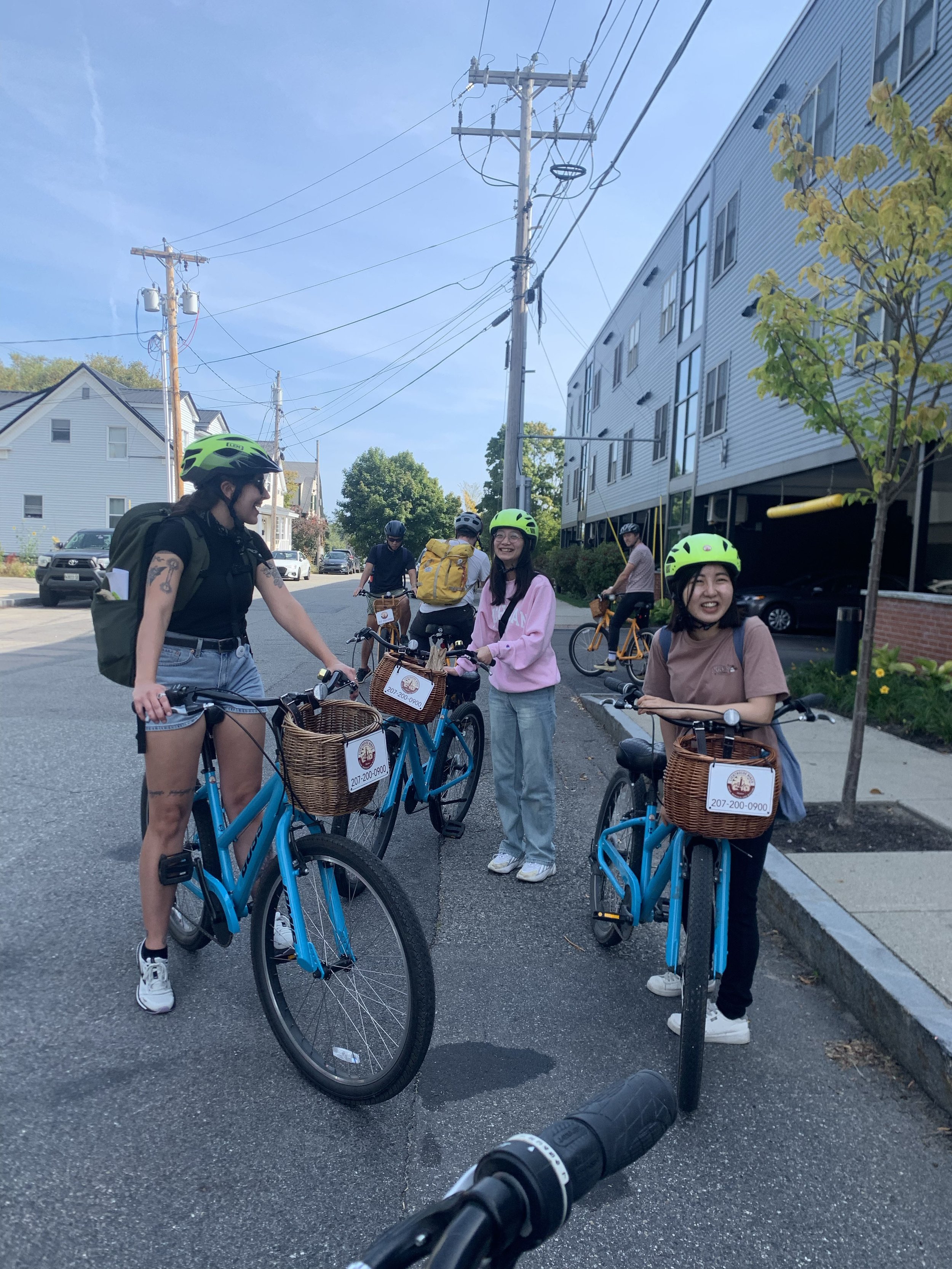



University of Toronto, Daniel Faculty of Architecture, Landscape and Design
Richard Sommer
Students: Yang Hu, Ye Xin Ling, Jessica Chan, Avondale Nixon, Julia Miclaus, Yipeng Huang, Laura Tobin, Harir Goodarznia, Elizabeth Nadeau and Jared Leslie
Lobster Tales — and other Architectures between Land and Sea
The team began their investigations with a set of questions to animate and give a philosophical grounding to the studio, which has four overlapping, speculative areas of focus: pocket metros, communities of affordance, shoulder spaces and topographic prospects. This studio will be the first semester in a two-semester sequence for the 10 students participating and will continue to develop their proposals during the Spring 2025 Semester.
Richard Sommer
Professor, Daniel Faculty of Architecture, Landscape and Design
Richard Sommer is Professor of Architecture and Urbanism and Director of the Global Cities Institute at the Daniels Faculty. From 2009 to 2020, he was the Dean of the Daniels Faculty. Under his leadership, the Daniels Faculty grew from a school exclusively focused on professional, masters’ education in architecture, landscape and urban design to a full-fledged division, incorporating an innovative foundation in undergraduate education, a Ph.D. in Architecture, Landscape and Design Studies, and new disciplines, including Art/Visual Studies and Forestry. In the process, the Daniels Faculty quadrupled in size and scope, making it one of the most broad-based schools of its kind in North America. To accommodate the Daniels Faculty’s newfound breadth and prominence, Sommer led the transformation of 1 Spadina Crescent, remaking a landmark heritage site into an award-winning NADAAA-designed project that now serves as the school’s home and public platform.
Prior to his appointment at the Daniels Faculty, Sommer was a member of the faculty at the Harvard Graduate School of Design for 11 years, where he served as director of the school’s urban design programs. He has held several other academic appointments, including the O’Hare Chair/Visiting American Scholar at the University of Ulster and Scholar-in-Residence at the California College of the Arts, as well as visiting professorships at the Cooper Union, Katholieke Universiteit Leuven, Washington University, Columbia University and Iowa State University.
Sommer received a Bachelor of Architecture and a Bachelor of Fine Arts from Rhode Island School of Design and a Master of Architecture at Harvard University’s Graduate School of Design. He cofounded a design practice, borfax/B.L.U., in 1994. He has lectured and served as a visiting critic internationally.
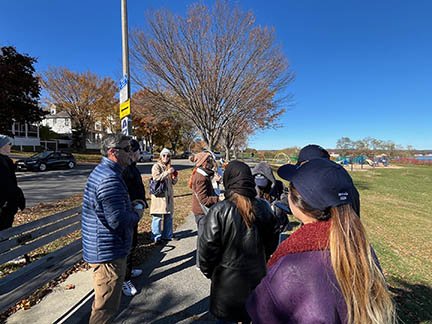
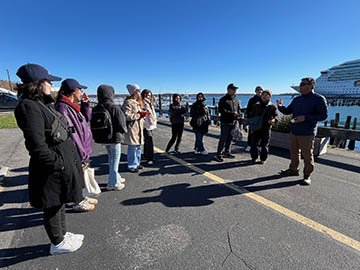


University of Virginia, School of Architecture
Michael Luegering
Students: Kaelyn Bray, Amanda Devairakkam, Charlotte Devine, Allyson Gibson, Alyssa Levy, Simin Liu, Steffi Shah, Sean Thiel, Madhura Vaze and Sheen Wang
Civic Infrastructure and Portland’s Back Cove
Migration and mobility, antifragility and ruins; this studio is exploring the historic evolution of the localized watershed around the Brooks that feed into Back Cove in Portland, Maine, the transportation infrastructure that has sculpted the estuary and the park infrastructure itself to consider a next iteration of nature-based infrastructure for this landscape. With these principles in mind, this studio examines nature-based infrastructure that listens and learns from the history and cultural tenants of the Portland region to develop concepts and scenarios engaging climate change.
Michael Luegering
Assistant Professor, Landscape Architecture
Michael Luegering is Principal at LVA Architects. He is a licensed Landscape Architect in the State of New York working on a variety of design projects and research work. He received a Bachelor of Urban Planning from the University of Cincinnati. He earned a Master of Landscape Architecture with distinction from Harvard’s Graduate School of Design, where he was awarded the Thesis Prize in Landscape Architecture for his thesis Vernacular Pasture Lands | The Rural Design Almanac. Michael’s design perspective is framed by his study of landscape architecture, urban design and urban planning, as well as his extensive research in the vernacular of the American pasture and his Kentucky upbringing.
He recently taught at the University of Pennsylvania in the area of landscape architecture media and visualization, and has contributed to Penn Praxis work on Resilient by Design. His past work at Penn includes working on the 2020 ASLA award-winning coastal resiliency mapping project, "Fantasy Island: The Galapagos Archipelago". Michael was awarded the 2017 G. Holmes Perkins Distinguished Teaching Award for Non Standing Faculty in The University of Pennsylvania Stuart Weitzman School of Design. Michael led a student team in the 2023 Envision Resilience New Bedford and Fairhaven Challenge.
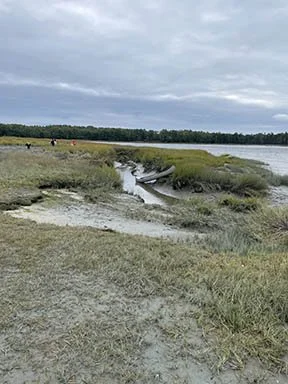
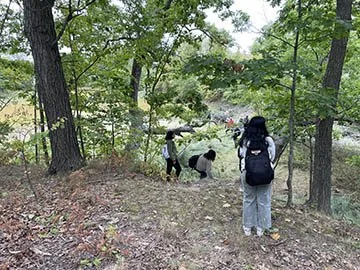


Yale University, School of Architecture
Alan Plattus
Students: Max Coolidge, Eva Crutan, Stormy Hall, Olly Hoy, Kurt Huckleberry, Blue Jo, Millie Johnson, Dan Kelly, Jongseung Lee, Livy Li, Yixing Liu, Peter Martinka
Teaching Fellow and Research Assistant: Sida Tang
Studio Brief: Coastal Resilience and Adaptation: Portland, Maine and Casco Bay
This seminar is developing research-driven and community-based preliminary proposals and RFPs for sustainable and resilient coastal adaptation that combines adaptive infrastructure, new public spaces, and social, economic and environmental development in Portland, Maine and the Casco Bay region. The seminar presents the coastal zone as a constantly changing and vulnerable ecotone inextricably bound up with the design decisions and unintended consequences of the Anthropocene era. Students are diving into comprehensive pilot projects that connect the three chosen transects of South Portland’s Bug Light Park, Portland’s Eastern Waterfront with its connections to Casco Bay and Portland’s Back Cove region.
Alan Plattus
Professor, Architecture
Alan Plattus began teaching at Yale in 1986 after serving on the faculty of Princeton University for seven years. He is the current director of the School’s Ph.D. program and the Yale Urban Design Workshop and Center for Urban Design Research (YUDW), which he founded in 1992 and which undertakes research and design studies for communities throughout Connecticut and the metropolitan region. Current YUDW projects include planning for a Heritage Park along the Thames River between New London and Groton, Connecticut, and resiliency planning for Bridgeport and the Connecticut coast funded by HUD’s Rebuild by Design program. Alan led a student team in the 2021 Envision Resilience Nantucket Challenge.
